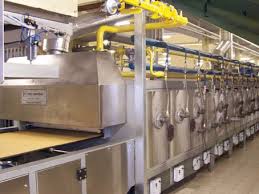
Nature of work
A production engineer’s job is to apply principles of engineering, manufacturing technology and management science to the production process in order to make it as efficient as possible. He/she ensures that the manufacturing process operates as smoothly as possible, reducing costly inefficiencies to the minimum. He/she is responsible for making sure that the manufacturing equipment is in good working order to make as much product as the marketplace dictates, with little leftover scrap. He/she works closely with business leaders, as well as employees involved in the manufacturing process to identify and resolve potential problems that could lead to equipment failure. He/she is expected to implement cost-savings initiatives that remove non-value-added steps from the process in order to save time and money without impacting the quality of the finished product. The production engineer will also meet with staff to understand the progress of efficiency-related initiatives and their performance in lowering the overall cost. While the production engineer’s actual involvement with the customer is limited, if any, he/she will understand the customer’s needs and work to make sure that those needs and expectations are fully met. Environment of work
Most companies operate a shift system. Working hours may include regular unsocial hours, including weekend and evening work. He/she may be required to work extra hours, particularly at times when a new process is being installed and tested. He/she must commit to strict health and safety rules and environmental policies. Many chartered engineers may work on a consultancy basis. Career breaks are possible. The quick technological change means that engineers should keep up to date with the profession keep up to date with the profession; otherwise, he/she may not be able to re-enter the same level. Some employers run career break schemes, which do allow jobs to be kept open. The company may have branches at other locations, either nationally or internationally, and travel may be necessary for training purposes. Professional life
A production engineer is not as specialized as other engineers, he/she is employed in a wide range of industries, including major manufacturing industries, consulting and engineering services, and research and development firms This variety arises from the fact that the engineer’s experience focuses on reducing internal costs, making his/her work valuable even for the fastest growing industries. However, development will be decreased since many manufacturing industries are projected to be declined. Their variety allows an industrial engineer to engage in activities that are useful to different business, governmental, and nonprofit sectors.Career development will depend on the individual, ambitions and the structure of his/her employing organization. The organizational culture, size and nature of the business will also influence career development. Some engineers will become project managers or some will specialize in a particular area and concentrate on research and development.Range of typical starting salaries: 50000 SYP plus potential bonuses.
Getting the job
A production engineer typically has a bachelor’s degree in an engineering field. He/she also might have a business or management degree. Many companies mandate that production engineers continue their education through required training courses in waste-reduction programs, such as Six Sigma or Lean initiatives. Skills
A production engineer must have extensive knowledge of math, statistics, design, production systems, and science, as well as a good awareness of the market and consumer needs. A production engineer is also expected to understand the changes in technology and assets to be able to improve his /her skills and to keep up to date with the increasingly sophisticated production methods that are constantly emerging in industry. He/she needs to have organizational and leadership skills as he/she often supervises others. He/she needs to be able to recommend solutions that address critical needs to senior management, who may not have the same level of technical knowledge of the manufacturing process as the production engineer. Sources and references
If you need any further information on what is included in this file, you can visit the following websites:· www.mer-online.com, Manufacturing Engineering Resource
· The Order of Syrian engineers, Damascus, Tel: 6627256
· www.arab-eng.org, Arab Engineers Forum.
· Arab Standard Classification of Occupations, 2008, Ed. Arab Labor Organization.
